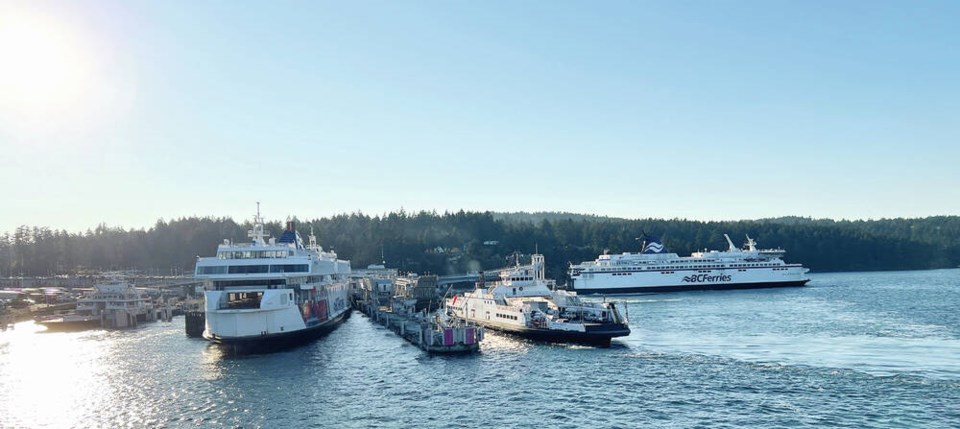B.C. Ferries has decided to buy four more Island class boats to serve the Nanaimo-Gabriola Island and Campbell River-Quadra Island routes.
The ferries will be hybrid-electric, and while no cost estimate has been made public, it’s likely the final price will be somewhere above $200 million.
Here’s the problem. All four boats will be built at a Romanian shipyard. And this makes no sense.
Romania is a tiny nation with an even tinier seaboard on the Black Sea. The country’s entire GDP is less than B.C.’s.
Its two port cities are smaller, combined, than the population of Greater Victoria, and a mere seventh the size of Vancouver’s.
So how can such a small economy beat out local yards here at home?
No doubt part of the reason is wage rates. Romania is a poor country, and its workers earn less than ours.
Yet there is another factor in play.
Over the years, B.C. Ferries has allowed local shipyards to atrophy. It’s not even clear the company tries to buy locally.
Here’s the corporate line: “The bidding process to build the new ships is open to qualified local, national and international companies. We certainly encourage local shipyards to participate.”
That simply doesn’t do it. After leaving local shipyards to wither on the vine with repeat off-shore purchases, a little more than encouragement is needed.
A clear preference should be stated, up to and including a dollar allowance for ships built at home.
It’s not as if ferries purchased abroad have proved exceptional performers. In 2023, the three Coastal class boats serving the company’s major routes between Â鶹´«Ă˝Ół»Island and the mainland suffered numerous mechanical breakdowns leading to 166 sailings being cancelled.
All were built in Germany.
In fairness, this nonsense predated the current management. For years, all but a couple of the company’s ferries were built here in B.C.
That changed, first in the mid-90s when then-premier Glen Clark bullied the company into building three “fast cat” ferries. While the boats were constructed in Vancouver, their design was hopelessly ill-fitted to the waterways on the major routes.
The boats had to be sold, essentially for scrap, and questions were raised about the competence of B.C. Ferries to manage large, complex projects.
Then in 2004, the company announced that all Canadian bids to construct the new Coastal class ferries had been disqualified, and that the ships would be built abroad.
That was followed in 2014 by the decision to award contracts for three Salish class boats to a Polish yard, and now we have four more contracts awarded to a Romanian firm.
The company justified awarding the Coastal class contracts to a German yard on the grounds that it would save $80 million, against an expenditure of about $540 million. That’s a “saving” of around 15 per cent.
No doubt the same thinking led to the contract in Romania, and before that in Poland.
Let’s look more closely at this fable. The general corporate tax rate in B.C. is 12 per cent. Had the ships been built here, that money would have stayed here.
Then there are the income tax revenues, sales tax revenues, the new jobs and economic spin-offs that an investment of $540 million would have created.
Building those ferries in Germany didn’t save money, it cost money.
Perhaps management were thinking only of the company’s well-being.
Yet B.C. Ferries is in no sense a private venture. It is a wholly owned, government-financed and government-directed subsidiary.
In that regard, we have a right to see it behave as such.
Stop sending taxpayers’ dollars to Flensburg, Gdansk and Romania, and spend them here at home.
>>> To comment on this article, write a letter to the editor: [email protected]



